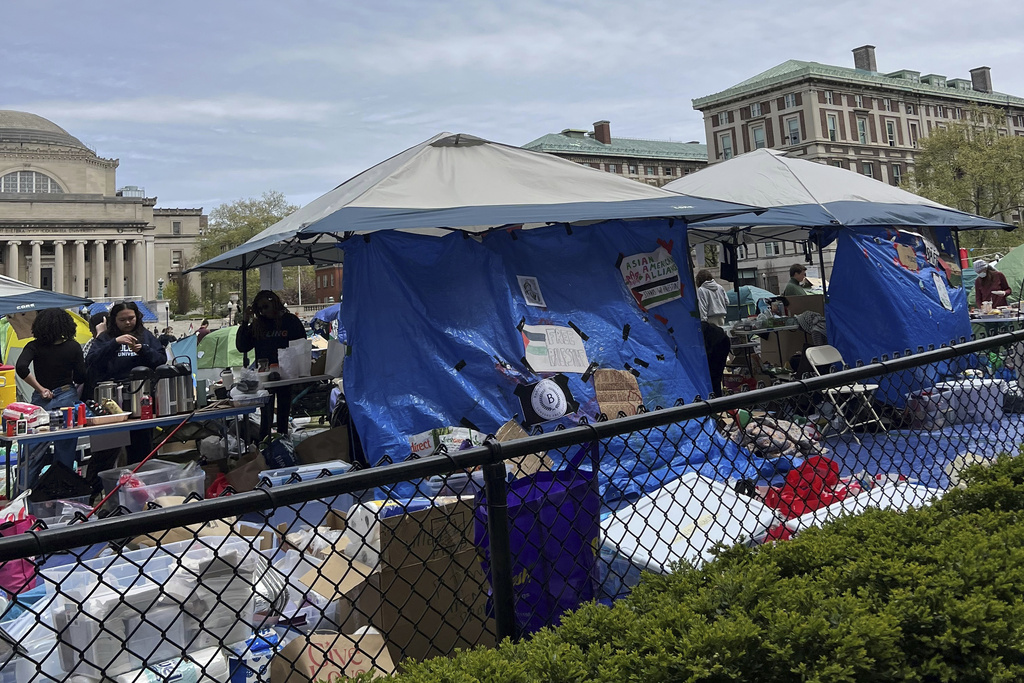The House passed legislation Wednesday that would establish a broader definition of antisemitism for the Department of Education to enforce anti-discrimination laws, the latest response from lawmakers to a nationwide student protest movement over the Israel-Hamas war.
The proposal, which passed 320-91 with some bipartisan support, would codify the International Holocaust Remembrance Alliance’s definition of antisemitism in Title VI of the Civil Rights Act of 1964, a federal anti-discrimination law that bars discrimination based on shared ancestry, ethnic characteristics or national origin. It now goes to the Senate where its fate is uncertain.
Action on the bill was just the latest reverberation in Congress from the protest movement that has swept university campuses. Republicans and Democrats in Congress have denounced the protests and demanded action to stop them.
If passed by the Senate and signed into law, the bill would broaden the legal definition of antisemitism to include the “targeting of the state of Israel, conceived as a Jewish collectivity.”
“What is happening at Columbia, at Yale, at UCLA, and so many other schools, is reprehensible and alarming,” said Congressman Mike Lawler (NY-17). “When people engage in harassment or bullying of Jewish individuals where they justify the killing of Jews or use blood libel or hold Jews collectively responsible for the actions of the Israeli government – that is antisemitic. It’s unfortunate that needs to be clarified, but that’s why this bill is necessary.”
“By requiring the Department of Education to adopt the IHRA Working Definition of Antisemitism and its contemporary examples, the Antisemitism Awareness Act gives teeth to federal anti-discrimination laws to go after those who attack their Jewish peers,” Lawler continued. “Politics should never get in the way of the safety of students. The strong bipartisan support for and passage of this legislation will ensure that it won’t.”
Critics of the bill, like self-hating Rep. Jerry Nadler, say the move would have a chilling effect on free speech throughout college campuses.
“Speech that is critical of Israel alone does not constitute unlawful discrimination,” Nadler said during a hearing Tuesday. “By encompassing purely political speech about Israel into Title VI’s ambit, the bill sweeps too broadly.”
Advocates of the proposal say it would provide a much-needed, consistent framework for the Department of Education to police and investigate the rising cases of discrimination and harassment targeted toward Jewish students.
The expanded definition of antisemitism was first adopted in 2016 by the International Holocaust Remembrance Alliance, an intergovernmental group that includes the United States and European Union states, and has been embraced by the State Department under the past three presidential administrations, including Joe Biden’s.
Previous bipartisan efforts to codify it into law have failed. But the Oct. 7 terrorist attack by Hamas in Israel and the subsequent war in Gaza have reignited efforts to target incidents of antisemitism on college campuses.
Separately, Speaker Mike Johnson announced Tuesday that several House committees will be tasked with a wide probe that ultimately threatens to withhold federal research grants and other government support for universities, placing another pressure point on campus administrators who are failing to manage or deter pro-Palestinian encampments, discrimination against Jewish students and questions of how they are integrating free speech and campus safety.
The House investigation follows several high-profile hearings that helped precipitate the resignations of presidents at Harvard and the University of Pennsylvania. And House Republicans promised more scrutiny, saying they were calling on the administrators of Yale, UCLA and the University of Michigan to testify next month.
The House Oversight Committee took it one step further Wednesday, sending a small delegation of Republican members to an encampment at nearby George Washington University in the District of Columbia. GOP lawmakers spent the short visit criticizing the protests and Mayor Muriel Bowser’s refusal to send in the Metropolitan Police Department to disperse the demonstrators.
(AP/YWN)












One Response
I would like to know who on the Republican side voted against the bill and why and please don’t give me that free speech garbage